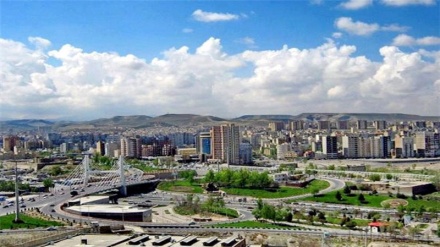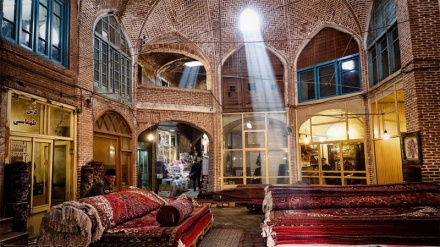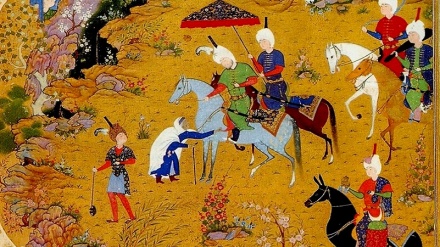Tabriz, 2018 (8)
Welcome to this week's episode of the series Tabriz, 2018. Today, we become familiar with the folk literature of the Azari people and their general characteristic traits.
Iran has always accommodated a number of cultures and ethnicities; each of which have influenced, and have been influenced by each other. Although different ethnicities in Iran, such as Fars, Kurd, Lor, Arab, Turkmen, and Azari people each maintain their own customs and traditions, based on their especial ethnical features and traits, the main factor behind the unity and solidarity of them all, is their Iranian nationality.
It was said that the majority of the residents of mountainous regions of Northwest Iran, which consists of East and West Azarbaijan Provinces, are Azari people. Last week, we became familiar with the music of the residents of this region of Iran. Today, we will discuss the oral literature and the folklore of Azari people, and will get to know their general characteristic traits and features.
Azari people are sincere, courageous, resilient in the face of difficulties, and truly amicable individuals. They are also committed to their religious beliefs, are hospitable, brave, trustworthy, and broad-minded.
The present-day language of Azari people is a branch of Turkic languages, which is popularly known as Azari language, which in addition to East and West Azaribaijan Provinces in Iran, is also spoken in a number of other countries. Furthermore, Azari language is spoken in some of the other provinces of Iran, based on a number of historical reasons, especially the migration of Azari people to other parts of this country.
Meanwhile, the folklore and oral literature of Azari people, similar to their history and language, maintains an age-old history.
Different kinds of the folk literature of East and West Azarbaijan Provinces, are the outcome of endeavors and interests of people, who have reflected their sorrows, happiness, aspirations, dislikes, and kindness within the framework of different forms of art.
Azari people are the creators of one of the richest treasures of folk literature of Iran and Middle Eastern nations. All travelers who have passed through East and West Azarbaijan Provinces, have referred to this region as the land of art and poetry. In fact, Azari people are fond of poetry, and whenever they encounter natural phenomena, social events, unfortunate or fortunate incidents, they have expressed their feelings and sentiments in the language of poetry, reciting poems for each and every occasion. It should be noted that the most prominent type of Azari poetry is Bayani Poetry, which covers a wide range of topics, from the most ordinary daily activities to the most elevated personal sentiments and emotions.
Azari mothers help their children fall asleep with their soothing lullaby. Azari weddings begin and end with poems, while mourning ceremonies also start and end with reciting a kind of poetry. Furthermore, an Azari farmer pleads for sunshine and rainfall by reciting poems, describing his farm, cows and sheep with poetry. In fact, poetry is the means that Azari people use to express their wishes and aspirations, fears, anxieties, and the life history of people of this region. Hence, in the folk literature of Azari people, Bayani Poetry maintains an elevated status.
Some of the oldest examples of folk literature of Azari people are the songs which are related to everyday activities of these people. The goal of these songs is to harmonize activities. These songs usually define and express activities and their means.
Hospitality is one of the evident traits of Azari people. In fact, many travelers in their travelogues have elaborated on hospitality of these people. Azari people attach significant importance to hospitality. Guests are honored and respected by Azari people. They are always prepared to host their guests. Usually the host joins the guests after preparation of a delicious meal, serving the guests. Azari people are known for making utmost efforts for preparation of several meals for their guests.
In the meantime; the dried nuts, chocolates, and dried fruits of East and West Azarbaijan Provinces, especially those of the city of Tabriz, are considered to be one of the best in the country. The dried nuts of the city of Tabriz have long been known as premium dried nuts. The dried fruits of this region include pistachios, hazelnuts, almonds, walnuts, dried peaches, apricots, and plums; part of which are exported overseas.
Furthermore, the presence of well-known chocolate producing factories in Azarbaijan region of Iran, has led to the popularity of this region's chocolates across the country, some of which are exported abroad.
Moreover, the handicrafts of the city of Tabriz and other cities of Azarbaijan region are also well-known; which will be discussed in detail in the coming weeks.
MR/SS


